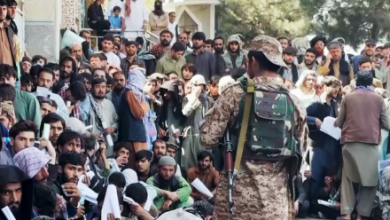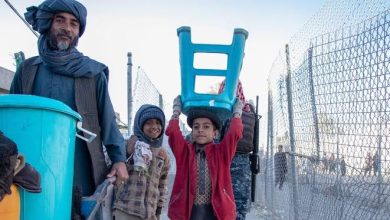UN Security Council to Convene on Afghanistan’s Humanitarian Crisis
The United Nations Security Council will hold its quarterly open briefing on Afghanistan on June 23, followed by closed consultations. The meeting will focus on the worsening humanitarian crisis in Afghanistan and the delivery of aid, in line with resolution 2615.
Key Briefers to Include UN Officials and Humanitarian Experts
Roza Otunbayeva, the UN Secretary-General’s Special Representative for Afghanistan and head of UNAMA, along with Sima Sami Bahous, Executive Director of UN Women, and a senior official from the UN Office for the Coordination of Humanitarian Affairs (OCHA), are expected to provide detailed briefings on the situation.
Humanitarian Crisis Deepens Amid Funding Shortfalls
Over 23 million Afghans—more than half the population—require humanitarian assistance. Aid organizations face critical funding shortages exacerbated by the suspension of U.S. aid, forcing reductions in food rations and closure of health clinics. OCHA reports that 400 clinics have closed recently, and millions may not receive assistance in 2025 without restored funding.
Political Analysts Call for Greater International Engagement
Experts emphasize that while the meeting is important, it is insufficient without direct engagement between the international community and the Islamic Emirate. Analysts note that prior Security Council actions have largely focused on criticizing the Taliban’s weaknesses rather than addressing urgent humanitarian needs.
Ahmad Khan Andar expressed satisfaction that the world continues to focus on Afghanistan but criticized the UN’s historical passivity during decades of conflict. Abdul Sadiq Hamidzoy highlighted the Council’s failure to prioritize the Afghan people’s suffering. Idris Mohammadi Zazai suggested that engagement with the Islamic Emirate could gradually resolve ongoing problems.
Islamic Emirate Demands Inclusion in Discussions
The Islamic Emirate has reiterated that representatives of the interim government should be included in Security Council meetings to ensure their perspectives are considered.
Background: Previous Security Council Actions
The last Security Council meeting on Afghanistan took place three months ago, resulting in the extension of the UNAMA mandate until March 17, 2026. The Council has also expressed concern over the Taliban’s restrictions on women and girls, which hinder aid delivery and violate international obligations.
Challenges Ahead: Women’s Rights and Aid Delivery
The Council is expected to address the Taliban’s enforcement of restrictive laws, particularly those affecting women and girls, which have disrupted humanitarian efforts. UN reports document systematic gender-based prohibitions that limit access to services for women unless accompanied by male relatives.
Urgent Need for Funding and Political Solutions
Humanitarian partners urge donors to increase flexible funding, especially to women-led organizations, and call for safe, gender-responsive aid delivery. Without renewed international support and political dialogue, the crisis is likely to worsen, threatening millions of lives and livelihoods.
This meeting represents a critical opportunity for the Security Council to reassess its approach to Afghanistan’s humanitarian and political challenges, balancing aid delivery with efforts to engage the Islamic Emirate constructively.





